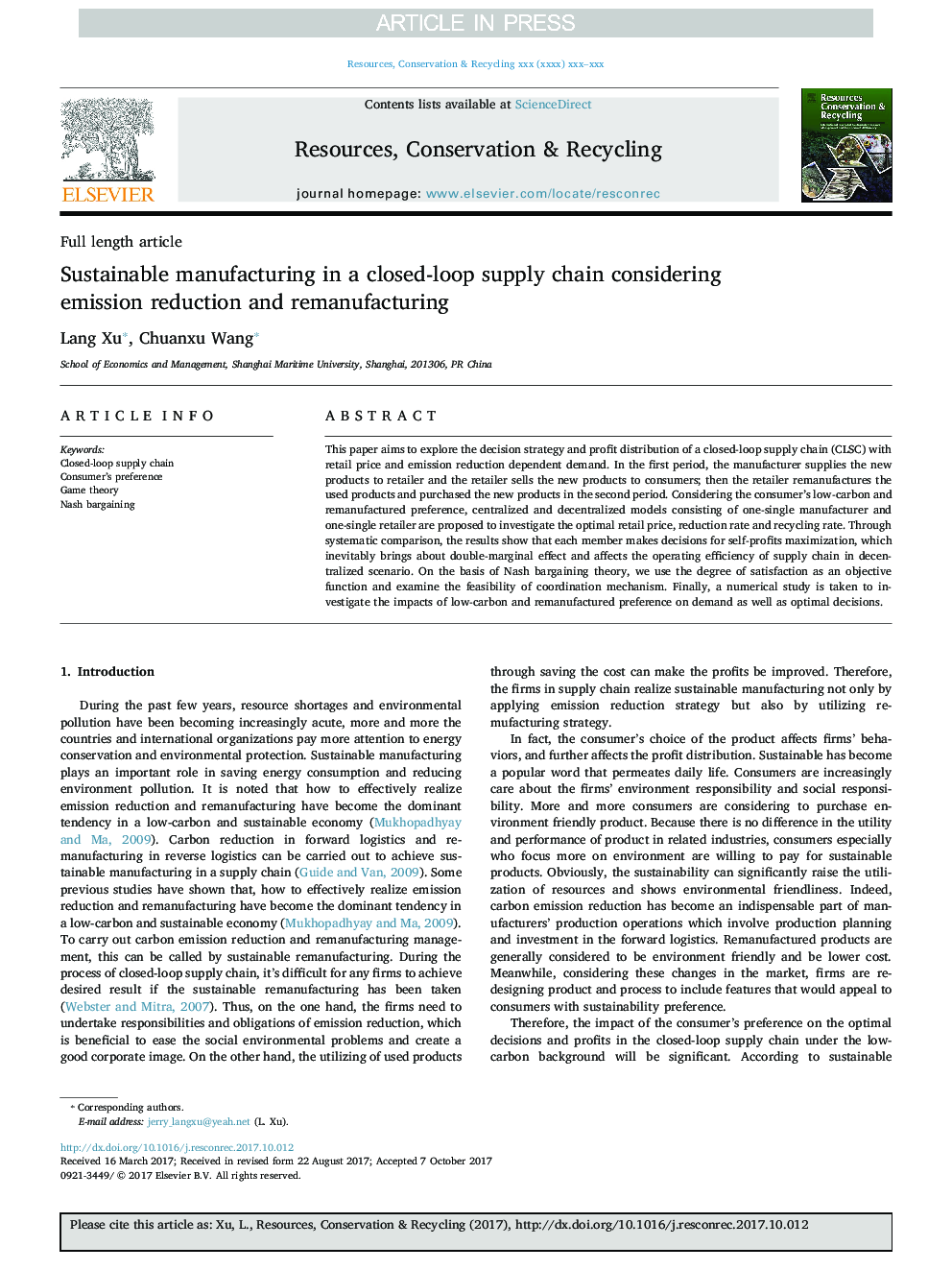| Article ID | Journal | Published Year | Pages | File Type |
|---|---|---|---|---|
| 7494385 | Resources, Conservation and Recycling | 2018 | 8 Pages |
Abstract
This paper aims to explore the decision strategy and profit distribution of a closed-loop supply chain (CLSC) with retail price and emission reduction dependent demand. In the first period, the manufacturer supplies the new products to retailer and the retailer sells the new products to consumers; then the retailer remanufactures the used products and purchased the new products in the second period. Considering the consumer's low-carbon and remanufactured preference, centralized and decentralized models consisting of one-single manufacturer and one-single retailer are proposed to investigate the optimal retail price, reduction rate and recycling rate. Through systematic comparison, the results show that each member makes decisions for self-profits maximization, which inevitably brings about double-marginal effect and affects the operating efficiency of supply chain in decentralized scenario. On the basis of Nash bargaining theory, we use the degree of satisfaction as an objective function and examine the feasibility of coordination mechanism. Finally, a numerical study is taken to investigate the impacts of low-carbon and remanufactured preference on demand as well as optimal decisions.
Related Topics
Physical Sciences and Engineering
Energy
Renewable Energy, Sustainability and the Environment
Authors
Lang Xu, Chuanxu Wang,
